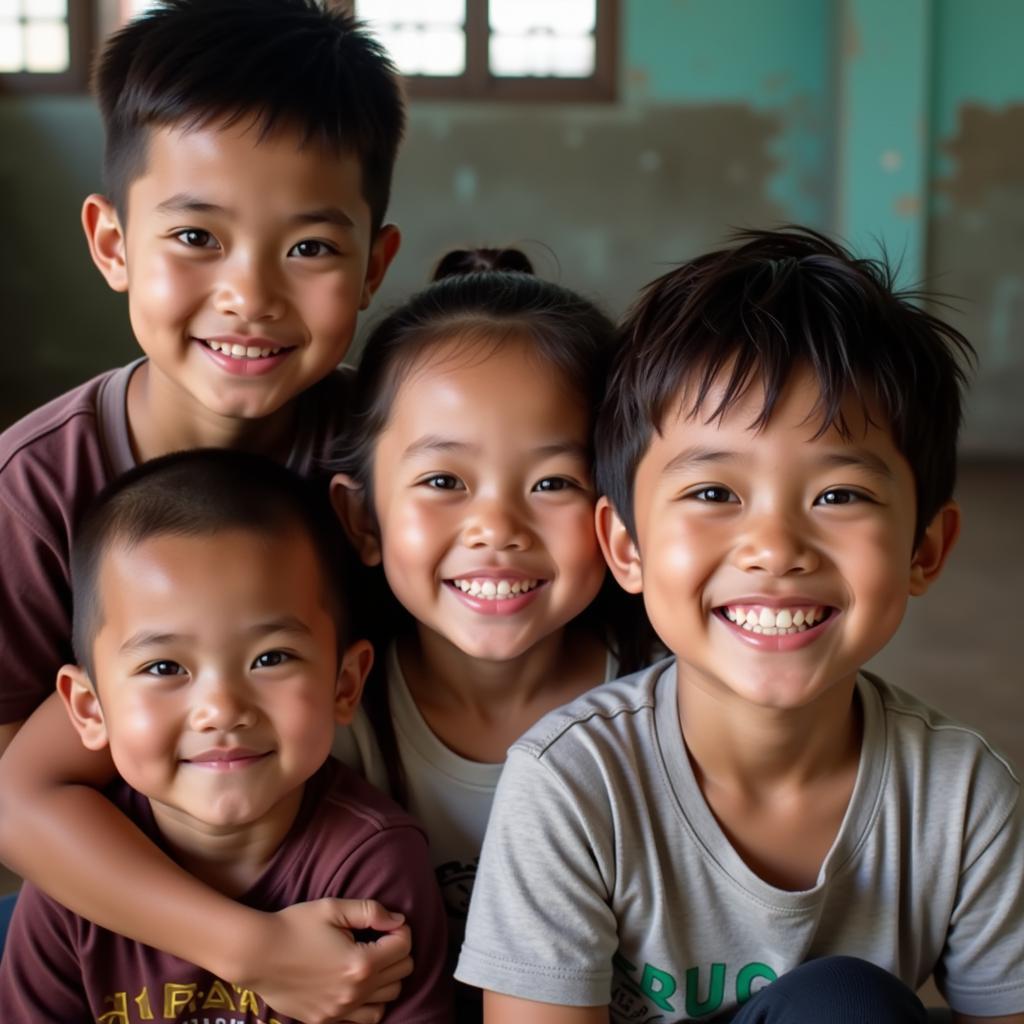Vietnam, a nation with a rich history and resilient spirit, faces the ongoing challenge of providing care and support for its orphaned and vulnerable children. While the term “orphanage” is commonly used, it’s important to understand the nuances of the care system in Vietnam and the various options available for supporting these children. This guide aims to shed light on the realities of orphanages in Vietnam, dispel common misconceptions, and provide practical ways you can make a difference in the lives of children in need.
 Vietnamese orphans
Vietnamese orphans
Understanding the Landscape of Vietnam Orphanages
The traditional image of an orphanage often evokes thoughts of large, impersonal institutions. While such facilities do exist in Vietnam, the landscape of care is gradually shifting towards smaller, family-like environments. The Vietnamese government, in partnership with local and international organizations, is actively working to transition away from institutional care and promote family-based care options.
Types of Care Facilities
- Traditional Orphanages: These larger facilities typically house a significant number of children and often lack the resources for individualized care.
- Group Homes: Smaller in scale, group homes offer a more intimate setting with dedicated caregivers providing personalized attention.
- Foster Care: This system places children temporarily in the care of vetted families, providing a loving and supportive home environment.
- Family Reunification: Efforts are made to reunite children with their extended families whenever possible, preserving cultural ties and providing a sense of belonging.
Addressing Misconceptions
There are several misconceptions surrounding orphanages in Vietnam. It’s crucial to approach this topic with sensitivity and rely on accurate information.
- Not all children in orphanages are orphans: Many children in care facilities have one or both parents living but face circumstances like poverty, illness, or lack of support that make it difficult to care for their children.
- Volunteering requires careful consideration: While well-intentioned, short-term volunteering trips can be disruptive to children’s routines and emotional well-being.
Making a Meaningful Impact
There are numerous ways you can support Vietnamese orphans and contribute to positive change:
- Financial Support: Donations to reputable organizations working on the ground can fund essential resources, educational programs, and healthcare services.
- Sustainable Volunteering: Consider long-term volunteering opportunities that offer consistency and specialized skills.
- Sponsor a Child: Many organizations offer child sponsorship programs, allowing you to contribute to a specific child’s education, healthcare, and overall well-being.
- Raise Awareness: Share accurate information about the situation of Vietnamese orphans within your network and advocate for ethical support.
 The future of Vietnamese orphans
The future of Vietnamese orphans
Conclusion
Supporting Vietnamese orphans requires a multifaceted approach rooted in understanding, respect, and a commitment to sustainable solutions. By challenging misconceptions and embracing ethical ways to contribute, we can collectively create a brighter future for these vulnerable children and empower them to reach their full potential.